When the World Shook (7)
By:
April 20, 2012
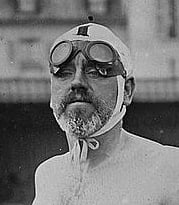
HILOBROW is pleased to present the seventh installment of our serialization of H. Rider Haggard’s When the World Shook. New installments will appear each Friday for 24 weeks.
Marooned on a South Sea island, Humphrey Arbuthnot and his friends awaken the last two members of an advanced race, who have spent 250,000 years in a state of suspended animation. Using astral projection, Lord Oro visits London and the battlefields of the Western Front; horrified by the degraded state of modern civilization, he activates chthonic technology capable of obliterating it. Will Oro’s beautiful daughter, Yva, who has fallen in love with Humphrey, stop him in time?
“If this is pulp fiction it’s high pulp: a Wagnerian opera of an adventure tale, a B-movie humanist apocalypse and chivalric romance,” says Lydia Millet in a blurb written for HiLoBooks. “When the World Shook has it all — English gentlemen of leisure, a devastating shipwreck, a volcanic tropical island inhabited by cannibals, an ancient princess risen from the grave, and if that weren’t enough a friendly, ongoing debate between a godless materialist and a devout Christian. H. Rider Haggard’s rich universe is both profoundly camp and deeply idealistic.”
Haggard’s only science fiction novel was first published in 1919. In September 2012, HiLoBooks will publish a beautiful new edition of When the World Shook, with an introduction by Atlantic Monthly contributing editor James Parker. NOW AVAILABLE FOR PRE-ORDERING!
SUBSCRIBE to HILOBROW’s serialized fiction via RSS.
LAST WEEK: “My own opinion, which Bickley shared, was that they were in fact a shrunken and deteriorated remnant of some high race now coming to its end through age and inter-breeding. About them indeed, notwithstanding their primitive savagery which in its qualities much resembled that of other Polynesians, there was a very curious air of antiquity. One felt that they had known the older world and its mysteries, though now both were forgotten.”
ALL EXCERPTS: 1 | 2 | 3 | 4 | 5 | 6 | 7 | 8 | 9 | 10 | 11 | 12 | 13 | 14 | 15 | 16 | 17 | 18 | 19 | 20 | 21 | 22 | 23 | 24
“I am about to take a row on the lake, Chief,” I answered carelessly.
“Indeed, Friend. Have we then treated you so badly that you are tired of life?”
“What do you mean?” I asked.
“Come out into the sunlight, Friend, and I will explain to you.”
I hesitated till I saw Marama lifting the heavy wooden spear he carried and remembered that I was unarmed. Then I came out.
“What does all this mean, Chief?” I asked angrily when we were clear of the patch of cotton palm.
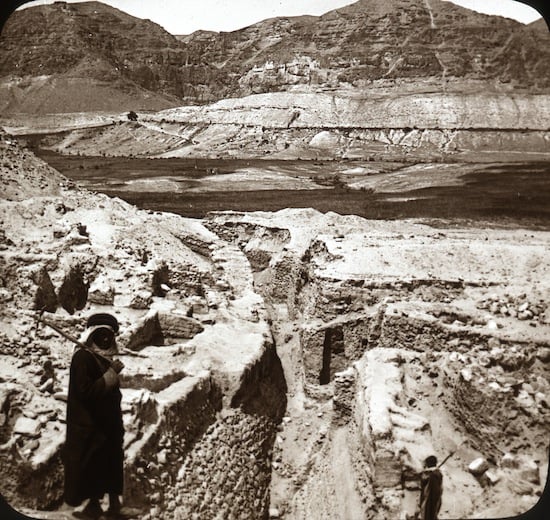
“I mean, Friend, that you have been very near to making a longer journey than you thought. Have patience now and listen to me. I saw you leaving the village this morning and followed, suspecting your purpose. Yes, I followed alone, saying nothing to the priests of Oro who fortunately were away watching the Bellower for their own reasons. I saw you searching out the secrets of the mountain with those magic tubes that make things big that are small, and things that are far off come near, and I followed you to the canoes.”
“All that is plain enough, Marama. But why?”
“Have I not told you, Friend-from-the-Sea, that yonder hill which is called Orofena, whence this island takes its name, is sacred?”
“You said so, but what of it?”
“This: to set foot thereon is to die and, I suppose, great as you are, you, too, can die like others. At least, although I love you, had you not come away from that canoe I was about to discover whether this is so.”
“Then for what are the canoes used?” I asked with irritation.
“You see that flat rock, Friend, with the hole beyond, which is the mouth of a cave that appeared only in the great storm that brought you to our land? They are used to convey offerings which are laid upon the rock. Beyond it no man may go, and since the beginning no man has ever gone.”
“Offerings to whom?”
“To the Oromatuas, the spirits of the great dead who live there.”
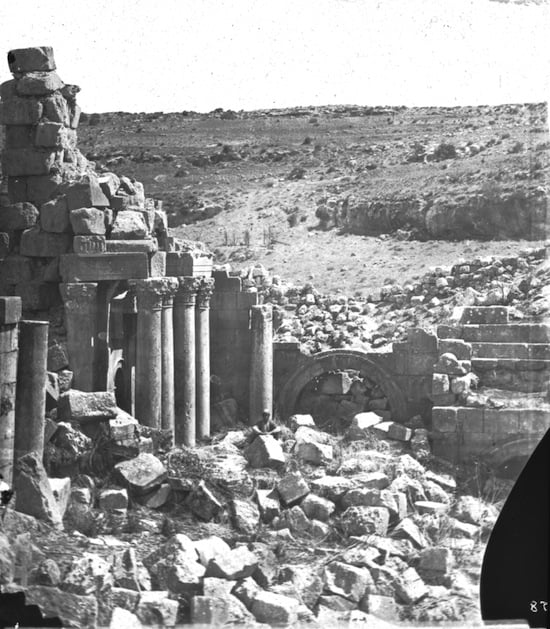
“Oromatuas? Oro! It is always something to do with Oro. Who and what is Oro?”
“Oro is a god, Friend, though it is true that the priests say that above him there is a greater god called Degai, the Creator, the Fate who made all things and directs all things.”
“Very well, but why do you suppose that Oro, the servant of Degai, lives in that mountain? I thought that he lived in a grove yonder where your priests, as I am told, have an image of him.”
“I do not know, Friend-from-the-Sea, but so it has been held from the beginning. The image in the grove is only visited by his spirit from time to time. Now, I pray you, come back and before the priests discover that you have been here, and forget that there are any canoes upon this lake.”
So, thinking it wisest, I turned the matter with a laugh and walked away with him to the village. On our road I tried to extract some more information but without success. He did not know who built the ruin upon the mountain, or who destroyed it. He did not know how the terraces came there. All he knew was that during the convulsion of Nature which resulted in the tidal wave that had thrown our ship upon the island, the mountain had been seen to quiver like a tree in the wind as though within it great forces were at work. Then it was observed to have risen a good many more feet above the surface of the lake, as might be noted by the water mark upon the shore, and then also the mouth of the cave had appeared. The priests said that all this was because the Oromatuas who dwelt there were stirring, which portended great things. Indeed great things had happened — for had we not arrived in their land?
I thanked him for what he had told me, and, as there was nothing more to be learned, dropped the subject which was never mentioned between us again, at least not for a long while. But in my heart I determined that I would reach that mountain even though to do so I must risk my life. Something seemed to call me to the place; it was as though I were being drawn by a magnet.
As it happened, before so very long I did go to the mountain, not of my own will but because I was obliged. It came about thus. One night I asked Bastin how he was getting on with his missionary work. He replied: Very well indeed, but there was one great obstacle in his path, the idol in the Grove. Were it not for this accursed image he believed that the whole island would become Christian. I asked him to be more plain. He explained that all his work was thwarted by this idol, since his converts declared that they did not dare to be baptised while it sat there in the Grove. If they did, the spirit that was in it would bewitch them and perhaps steal out at night and murder them.
“The spirit being our friends the sorcerers,” I suggested.
“That’s it, Arbuthnot. Do you know, I believe those devilish men sometimes offer human sacrifices to this satanic fetish, when there is a drought or anything of that sort.”
“I can quite believe it,” I answered, “but as they will scarcely remove their god and with it their own livelihood and authority, I am afraid that as we don’t want to be sacrificed, there is nothing to be done.”
At this moment I was called away. As I went I heard Bastin muttering something about martyrs, but paid no attention. Little did I guess what was going on in his pious but obstinate mind. In effect it was this — that if no one else would remove that idol he was quite ready to do it himself.
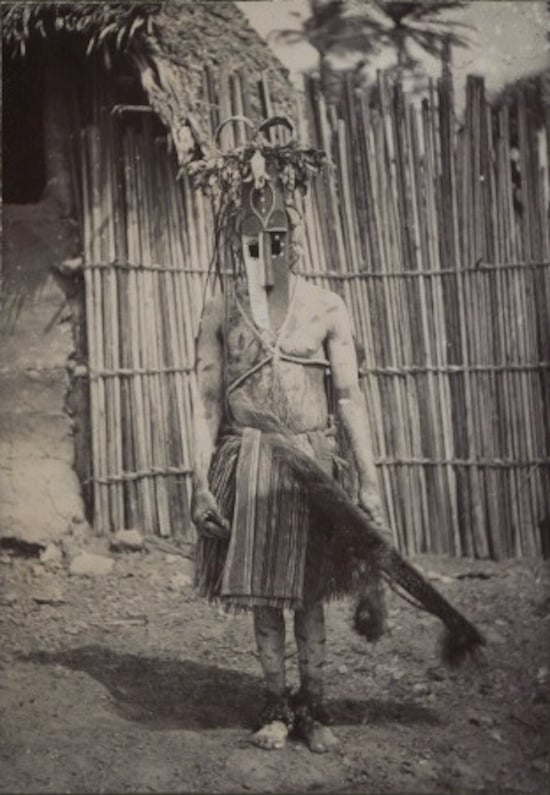
However, he was very cunning over that business, almost Jesuitical indeed. Not one word did he breathe of his dark plans to me, and still less to Bickley. He just went on with his teaching, lamenting from time to time the stumbling-block of the idol and expressing wonder as to how it might be circumvented by a change in the hearts of the islanders, or otherwise. Sad as it is to record, in fact, dear old Bastin went as near to telling a fib in connection with this matter as I suppose he had ever done in his life. It happened thus. One day Bickley’s sharp eye caught sight of Bastin walking about with what looked like a bottle of whisky in his pocket.
“Hallo, old fellow,” he said, “has the self-denying ordinance broken down? I didn’t know that you took pegs on the sly,” and he pointed to the bottle.
“If you are insinuating, Bickley, that I absorb spirits surreptitiously, you are more mistaken than usual, which is saying a good deal. This bottle contains, not Scotch whisky but paraffin, although I admit that its label may have misled you, unintentionally, so far as I am concerned.”
“What are you going to do with the paraffin?” asked Bickley.
Bastin coloured through his tan and replied awkwardly:
“Paraffin is very good to keep away mosquitoes if one can stand the smell of it upon one’s skin. Not that I have brought it here with that sole object. The truth is that I am anxious to experiment with a lamp of my own design made — um — of native wood,” and he departed in a hurry.
“When next old Bastin wants to tell a lie,” commented Bickley, “he should make up his mind as to what it is to be, and stick to it. I wonder what he is after with that paraffin? Not going to dose any of my patients with it, I hope. He was arguing the other day that it is a great remedy taken internally, being quite unaware that the lamp variety is not used for that purpose.”
“Perhaps he means to swallow some himself, just to show that he is right,” I suggested.
“The stomach-pump is at hand,” said Bickley, and the matter dropped.
Next morning I got up before it was light. Having some elementary knowledge of the main facts of astronomy, which remained with me from boyhood when I had attended lectures on the subject, which I had tried to refresh by help of an encyclopedia I had brought from the ship, I wished to attempt to obtain an idea of our position by help of the stars. In this endeavour, I may say, I failed absolutely, as I did not know how to take a stellar or any other observation.
On my way out of our native house I observed, by the lantern I carried, that the compartment of it occupied by Bastin was empty, and wondered whither he had gone at that hour. On arriving at my observation-post, a rocky eminence on open ground, where, with Tommy at my side, I took my seat with a telescope, I was astonished to see or rather to hear a great number of the natives walking past the base of the mound towards the bush. Then I remembered that some one, Marama, I think, had informed me that there was to be a great sacrifice to Oro at dawn on that day. After this I thought no more of the matter but occupied myself in a futile study of the heavenly bodies. At length the dawn broke and put a period to my labours.
Glancing round me before I descended from the little hill, I saw a flame of light appear suddenly about half a mile or more away among those trees which I knew concealed the image of Oro. On this personally I had never had the curiosity to look, as I knew that it was only a hideous idol stuck over with feathers and other bedizenments. The flame shot suddenly straight into the still air and was followed a few seconds later by the sound of a dull explosion, after which it went out. Also it was followed by something else — a scream of rage from an infuriated mob.
At the foot of the hill I stopped to wonder what these sounds might mean. Then of a sudden appeared Bickley, who had been attending some urgent case, and asked me who was exploding gunpowder. I told him that I had no idea.
“Then I have,” he answered. “It is that ass Bastin up to some game. Now I guess why he wanted that paraffin. Listen to the row. What are they after?”
“Sacrificing Bastin, perhaps,” I replied, half in jest. “Have you your revolver?”
He nodded. We always wore our pistols if we went out during the dark hours.
“Then perhaps we had better go to see.”
We started, and had not covered a hundred yards before a girl, whom I recognised as one of Bastin’s converts, came flying towards us and screaming out, “Help! Help! They kill the Bellower with fire! They cook him like a pig!”
“Just what I expected,” said Bickley.
Then we ran hard, as evidently there was no time to lose. While we went I extracted from the terrified girl, whom we forced to show us the way, that as the sacrifice was about to be offered Bastin had appeared, and, “making fire,” applied it to the god Oro, who instantly burst into flame. Then he ran back, calling out that the devil was dead. As he did so there was a loud explosion and Oro flew into pieces. His burning head went a long way into the air and, falling on to one of the priests, killed him. Thereon the other priests and the people seized the Bellower and made him fast. Now they were engaged in heating an oven in which to put him to cook. When it was ready they would eat him in honour of Oro.
“And serve him right too!” gasped Bickley, who, being stout, was not a good runner. “Why can’t he leave other people’s gods alone instead of blowing them up with gunpowder?”
“Don’t know,” I answered. “Hope we shall get there in time!”
“To be cooked and eaten with Bastin!” wheezed Bickley, after which his breath gave out.
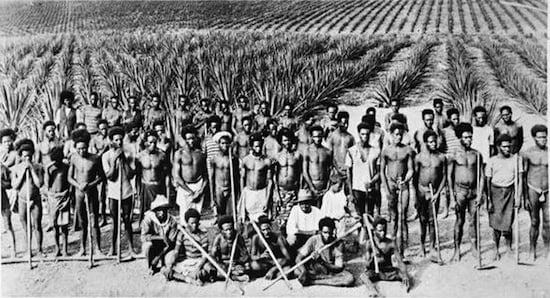
As it chanced we did, for these stone ovens take a long time to heat. There by the edge of his fiery grave with his hands and legs bound in palm-fibre shackles, stood Bastin, quite unmoved, smiling indeed, in a sort of seraphic way which irritated us both extremely. Round him danced the infuriated priests of Oro, and round them, shrieking and howling with rage, was most of the population of Orofena. We rushed up so suddenly that none tried to stop us, and took our stand on either side of him, producing our pistols as we did so.
“Thank you for coming,” said Bastin in the silence which followed; “though I don’t think it is the least use. I cannot recall that any of the early martyrs were ever roasted and eaten, though, of course, throwing them into boiling oil or water was fairly common. I take it that the rite is sacrificial and even in a low sense, sacramental, not merely one of common cannibalism.”
I stared at him, and Bickley gasped out:
“If you are to be eaten, what does it matter why you are eaten?”
“Oh!” replied Bastin; “there is all the difference in the world, though it is one that I cannot expect you to appreciate. And now please be quiet as I wish to say my prayers. I imagine that those stones will be hot enough to do their office within twenty minutes or so, which is not very long.”
At that moment Marama appeared, evidently in a state of great perturbation. With him were some of the priests or sorcerers who were dancing about as I imagine the priests of Baal must have done, and filled with fury. They rolled their eyes, they stuck out their tongues, they uttered weird cries and shook their wooden knives at the placid Bastin.
“What is the matter?” I asked sternly of the chief.
“This, Friend-from-the-Sea. The Bellower there, when the sacrifice was about to be offered to Oro at the dawn, rushed forward, and having thrust something between the legs of the image of the god, poured yellow water over it, and with fire caused it to burst into fierce flame. Then he ran away and mocked the god who presently, with a loud report, flew into pieces and killed that man. Therefore the Bellower must be sacrificed.”
“What to?” I asked. “The image has gone and the piece of it that ascended fell not upon the Bellower, as would have happened if the god had been angry with him, but on one of its own priests, whom it killed. Therefore, having been sacrificed by the god itself, he it is that should be eaten, not the Bellower, who merely did what his Spirit bade him.”
This ingenious argument seemed to produce some effect upon Marama, but to the priests it did not at all appeal.
“Eat them all!” these cried. “They are the enemies of Oro and have worked sacrilege!”
Moreover, to judge from their demeanour, the bulk of the people seemed to agree with them. Things began to look very ugly. The priests rushed forward, threatening us with their wooden weapons, and one of them even aimed a blow at Bickley, which only missed him by an inch or two.
“Look here, my friend,” called the doctor whose temper was rising, “you name me the Great Priest or Great Healer, do you not? Well, be careful, lest I should show you that I can kill as well as heal!”
Not in the least intimidated by this threat the man, a great bedizened fellow who literally was foaming at the mouth with rage, rushed forward again, his club raised, apparently with the object of dashing out Bickley’s brains.
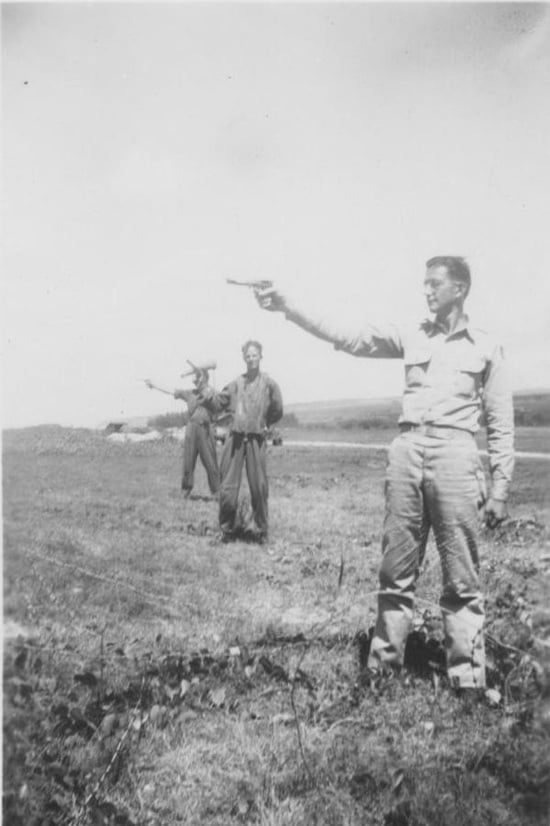
Suddenly Bickley lifted his revolver and fired. The man, shot through the heart, sprang into the air and fell upon his face — stone dead. There was consternation, for these people had never seen us shoot anything before, and were quite unacquainted with the properties of firearms, which they supposed to be merely instruments for making a noise. They stared, they gasped in fear and astonishment, and then they fled, pursued by Tommy, barking, leaving us alone with the two dead men.
“It was time to teach them a lesson,” said Bickley as he replaced the empty cartridge, and, seizing the dead man, rolled him into the burning pit.
“Yes,” I answered; “but presently, when they have got over their fright, they will come back to teach us one.”
Bastin said nothing; he seemed too dazed at the turn events had taken.
“What do you suggest?” asked Bickley.
“Flight,” I answered.
“Where to — the ship? We might hold that.”
“No; that is what they expect. Look! They are cutting off our road there. To the island in the lake where they dare not follow us, for it is holy ground.”
“How are we going to live on the island?” asked Bickley.
“I don’t know,” I replied; “but I am quite certain that if we stay here we shall die.”
“Very well,” he said; “let us try it.”
While we were speaking I was cutting Bastin’s bonds. “Thank you,” he said. “It is a great relief to stretch one’s arms after they have been compressed with cords. But at the same time, I do not know that I am really grateful. The martyr’s crown was hanging above me, so to speak, and now it has vanished into the pit, like that man whom Bickley murdered.”
“Look here,” exclaimed the exasperated Bickley, “if you say much more, Bastin, I’ll chuck you into the pit too, to look for your martyr’s crown, for I think you have done enough mischief for one morning.”
“If you are trying to shift the responsibility for that unfortunate man’s destruction on to me —”
“Oh! shut it and trot,” broke in Bickley. “Those infernal savages are coming with your blessed converts leading the van.”
So we “trotted” at no mean pace. As we passed it, Bastin stooped down and picked up the head of the image of Oro, much as Atalanta in Academy pictures is represented as doing to the apples, and bore it away in triumph.
“I know it is scorched,” he ejaculated at intervals, “but they might trim it up and stick it on to a new body as the original false god. Now they can’t, for there’s nothing left.”
As a matter of fact, we were never in any real danger, for our pursuit was very half-hearted indeed. To begin with, now that their first rage was over, the Orofenans who were fond of us had no particular wish to do us to death, while the ardour of their sorcerers, who wished this very much, had been greatly cooled by the mysterious annihilation of their idol and the violent deaths of two of their companions, which they thought might be reduplicated in their own persons. So it came about that the chase, if noisy, was neither close nor eager.
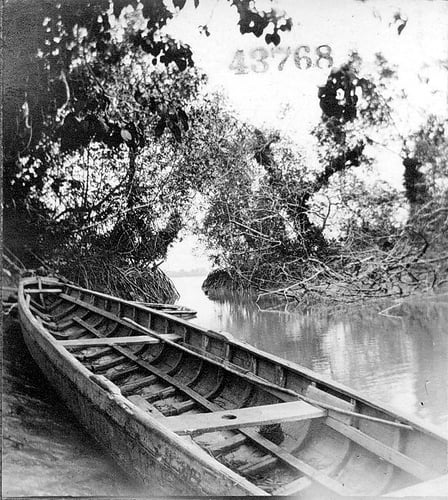
We reached the edge of the lake where was the boat-house of which I have spoken already, travelling at little more than a walk. Here we made Bastin unfasten the better of the two canoes that by good luck was almost filled with offerings, which doubtless, according to custom, must be made upon the day of this feast to Oro, while we watched against surprise at the boat-house door. When he was ready we slipped in and took our seats, Tommy jumping in after us, and pushed the canoe, now very heavily laden, out into the lake.
Here, at a distance of about forty paces, which we judged to be beyond wooden spear-throw, we rested upon our paddles to see what would happen. All the crowd of islanders had rushed to the lake edge where they stood staring at us stupidly. Bastin, thinking the occasion opportune, lifted the hideous head of the idol which he had carefully washed, and began to preach on the downfall of “the god of the Grove.”
This action of his appeared to awake memories or forebodings in the minds of his congregation. Perhaps some ancient prophecy was concerned —I do not know. At any rate, one of the priests shouted something, whereon everybody began to talk at once. Then, stooping down, they threw water from the lake over themselves and rubbed its sand and mud into their hair, all the while making genuflexions toward the mountain in the middle, after which they turned and departed.
“Don’t you think we had better go back?” asked Bastin. “Evidently my words have touched them and their minds are melting beneath the light of Truth.”
“Oh! by all means,” replied Bickley with sarcasm; “for then their spears will touch us, and our bodies will soon be melting above the fires of that pit.”
“Perhaps you are right,” said Bastin; “at least, I admit that you have made matters very difficult by your unjustifiable homicide of that priest who I do not think meant to injure you seriously, and really was not at all a bad fellow, though opinionated in some ways. Also, I do not suppose that anybody is expected, as it were, to run his head into the martyr’s crown. When it settles there of itself it is another matter.”
“Like a butterfly!” exclaimed the enraged Bickley.
“Yes, if you like to put it that way, though the simile seems a very poor one; like a sunbeam would be better.”
Here Bickley gave way with his paddle so vigorously that the canoe was as nearly as possible upset into the lake.
In due course we reached the flat Rock of Offerings, which proved to be quite as wide as a double croquet lawn and much longer.
“What are those?” I asked, pointing to certain knobs on the edge of the rock at a spot where a curved projecting point made a little harbour.
Bickley examined them, and answered:
“I should say that they are the remains of stone mooring-posts worn down by many thousands of years of weather. Yes, look, there is the cut of the cables upon the base of that one, and very big cables they must have been.”
We stared at one another — that is, Bickley and I did, for Bastin was still engaged in contemplating the blackened head of the god which he had overthrown.
THE ISLAND IN THE LAKE
We made the canoe fast and landed on the great rock, to perceive that it was really a peninsula. That is to say, it was joined to the main land of the lake island by a broad roadway quite fifty yards across, which appeared to end in the mouth of the cave. On this causeway we noted a very remarkable thing, namely, two grooves separated by an exact distance of nine feet which ran into the mouth of the cave and vanished there.
“Explain!” said Bickley.
“Paths,” I said, “worn by countless feet walking on them for thousands of years.”
“You should cultivate the art of observation, Arbuthnot. What do you say, Bastin?”
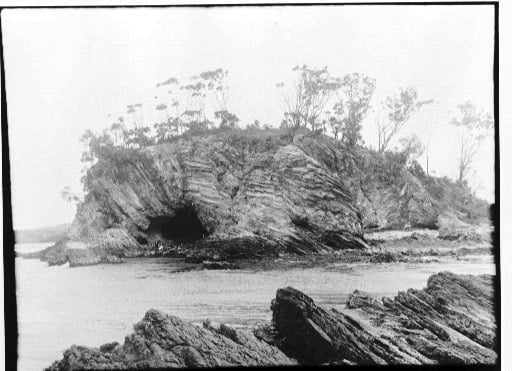
He stared at the grooves through his spectacles, and replied:
“I don’t say anything, except that I can’t see anybody to make paths here. Indeed, the place seems quite unpopulated, and all the Orofenans told me that they never landed on it because if they did they would die. It is a part of their superstitious nonsense. If you have any idea in your head you had better tell us quickly before we breakfast. I am very hungry.”
“You always are,” remarked Bickley; “even when most people’s appetites might have been affected. Well, I think that this great plateau was once a landing-place for flying machines, and that there is the air-shed or garage.”
Bastin stared at him.
“Don’t you think we had better breakfast?” he said. “There are two roast pigs in that canoe, and lots of other food, enough to last us a week, I should say. Of course, I understand that the blood you have shed has thrown you off your balance. I believe it has that effect, except on the most hardened. Flying machines were only invented a few years ago by the brothers Wright in America.”
“Bastin,” said Bickley, “I begin to regret that I did not leave you to take part in another breakfast yonder —I mean as the principal dish.”
“It was Providence, not you, who prevented it, Bickley, doubtless because I am unworthy of such a glorious end.”
“Then it is lucky that Providence is a good shot with a pistol. Stop talking nonsense and listen. If those were paths worn by feet they would run to the edge of the rock. They do not. They begin there in that gentle depression and slope upwards somewhat steeply. The air machines, which were evidently large, lit in the depression, possibly as a bird does, and then ran on wheels or sledge skids along the grooves to the air-shed in the mountain. Come to the cave and you will see.”
“Not till we have breakfast,” said Bastin. “I will get out a pig. As a matter of fact, I had no supper last night, as I was taking a class of native boys and making some arrangements of my own.”
As for me, I only whistled. It all seemed very feasible. And yet how could such things be?
We unloaded the canoe and ate. Bastin’s appetite was splendid. Indeed, I had to ask him to remember that when this supply was done I did not know where we should find any more.
“Take no thought for the morrow,” he replied. “I have no doubt it will come from somewhere,” and he helped himself to another chop.
Never had I admired him so much. Not a couple of hours before he was about to be cruelly murdered and eaten. But this did not seem to affect him in the least. Bastin was the only man I have ever known with a really perfect faith. It is a quality worth having and one that makes for happiness. What a great thing not to care whether you are breakfasted on, or breakfast!
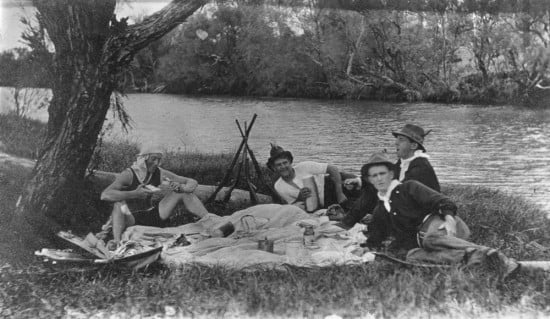
“I see that there is lots of driftwood about here,” he remarked, “but unfortunately we have no tea, so in this climate it is of little use, unless indeed we can catch some fish and cook them.”
“Stop talking about eating and help us to haul up the canoe,” said Bickley.
Between the three of us we dragged and carried the canoe a long way from the lake, fearing lest the natives should come and bear it off with our provisions. Then, having given Tommy his breakfast off the scraps, we walked to the cave. I glanced at my companions. Bickley’s face was alight with scientific eagerness. Here are not dreams or speculations, but facts to be learned, it seemed to say, and I will learn them. The past is going to show me some of its secrets, to tell me how men of long ago lived and died and how far they had advanced to that point on the road of civilisation at which I stand in my little hour of existence.
That of Bastin was mildly interested, no more. Obviously, with half his mind he was thinking of something else, probably of his converts on the main island and of the school class fixed for this hour which circumstances prevented him from attending. Indeed, like Lot’s wife he was casting glances behind him towards the wicked place from which he had been forced to flee.
Neither the past nor the future had much real interest for Bastin; any more than they had for Bickley, though for different reasons. The former was done with; the latter he was quite content to leave in other hands. If he had any clear idea thereof, probably that undiscovered land appeared to him as a big, pleasant place where are no unbelievers or erroneous doctrines, and all sinners will be sternly repressed, in which, clad in a white surplice with all proper ecclesiastical trappings, he would argue eternally with the Early Fathers and in due course utterly annihilate Bickley, that is in a moral sense. Personally and as a man he was extremely attached to Bickley as a necessary and wrong-headed nuisance to which he had become accustomed.
And I! What did I feel? I do not know; I cannot describe. An extraordinary attraction, a semi-spiritual exaltation, I think. That cave mouth might have been a magnet drawing my soul. With my body I should have been afraid, as I daresay I was, for our circumstances were sufficiently desperate. Here we were, castaways upon an island, probably uncharted, one of thousands in the recesses of a vast ocean, from which we had little chance of escape. More, having offended the religious instincts of the primeval inhabitants of that island, we had been forced to flee to a rocky mountain in the centre of a lake, where, after the food we had brought with us by accident was consumed, we should no doubt be forced to choose between death by starvation, or, if we attempted to retreat, at the hands of justly infuriated savages. Yet these facts did not oppress me, for I was being drawn, drawn to I knew not what, and if it were to doom — well, no matter.
Therefore, none of us cared: Bastin because his faith was equal to any emergency and there was always that white-robed heaven waiting for him beyond which his imagination did not go (I often wondered whether he pictured Mrs. Bastin as also waiting; if so, he never said anything about her); Bickley because as a child of the Present and a servant of knowledge he feared no future, believing it to be for him non-existent, and was careless as to when his strenuous hour of life should end; and I because I felt that yonder lay my true future; yes, and my true past, even though to discover them I must pass through that portal which we know as Death.
NEXT WEEK: “I explained my ideas. Bastin thought them fanciful and preferred his notion of a flying man, since by constitution he was unable to discover anything spiritual in any religion except his own. Bickley agreed that it was probably an allegorical representation of death but sniffed at my interpretation of the wings and the torch, since by constitution he could not believe that the folly of a belief in immortality could have developed so early in the world, that is, among a highly civilised people such as must have produced this statue. What we could none of us understand was why this ominous image with its dead, cold face should have been placed in an aerodrome…”
RADIUM AGE SCIENCE FICTION: “Radium Age” is HILOBROW’s name for the 1904–33 era, which saw the discovery of radioactivity, the revelation that matter itself is constantly in movement — a fitting metaphor for the first decades of the 20th century, during which old scientific, religious, political, and social certainties were shattered. This era also saw the publication of genre-shattering writing by Edgar Rice Burroughs, Sax Rohmer, E.E. “Doc” Smith, Jack London, Arthur Conan Doyle, Aldous Huxley, Olaf Stapledon, Karel Čapek, H.P. Lovecraft, Charlotte Perkins Gilman, Yevgeny Zamyatin, Philip Gordon Wylie, and other pioneers of post-Verne/Wells, pre-Golden Age “science fiction.” More info here.
HILOBOOKS: The mission of HiLoBooks is to serialize novels on HiLobrow; and also, as of 2012, operating as an imprint of Richard Nash’s Cursor, to reissue Radium Age science fiction in beautiful new print editions. So far, we have published Jack London’s The Scarlet Plague, Rudyard Kipling’s With the Night Mail (and “As Easy as A.B.C.”), Arthur Conan Doyle’s The Poison Belt, H. Rider Haggard’s When the World Shook, Edward Shanks’s The People of the Ruins, William Hope Hodgson’s The Night Land, and J.D. Beresford’s Goslings. Forthcoming: E.V. Odle’s The Clockwork Man, Cicely Hamilton’s Theodore Savage, and Muriel Jaeger’s The Man with Six Senses. For more information, visit the HiLoBooks homepage.
READ: You are reading H. Rider Haggard’s When The World Shook. Also read our serialization of: Jack London’s The Scarlet Plague | Rudyard Kipling’s With the Night Mail and “As Easy As A.B.C.” | Arthur Conan Doyle’s The Poison Belt
ORIGINAL FICTION: HILOBROW has serialized three novels: James Parker’s The Ballad of Cocky The Fox (“a proof-of-concept that serialization can work on the Internet” — The Atlantic) and Karinne Keithley Syers’s Linda Linda Linda. We also publish original stories and comics.
